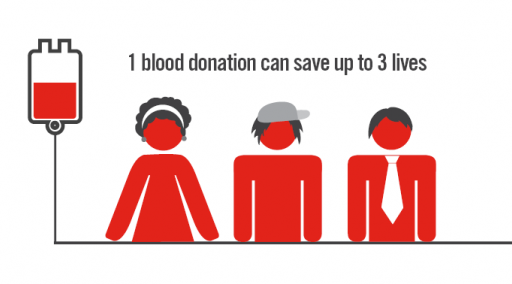Your Donation Saves Lives (and Has Several Health Perks)
Every two seconds, someone in the United States needs blood. On average, more than 41,000 blood donations are needed every day, according to the American Red Cross. In the winter months, the Red Cross receives fewer blood donations due to incremental weather and seasonal sicknesses, like the flu, that may cause some donors to become temporarily unable to donate.
While giving blood should be all about helping those in need, there are a few things in it for you! Here are four health perks of becoming a blood donor, according to Health Magazine and lifehack.org:
Your blood may flow better.
Repeated blood donations may help the blood flow in a way that’s less damaging to the lining of the blood vessels and could result in fewer arterial blockages. That may explain why the American Journal of Epidemiology found blood donors are 88% less likely to suffer from a heart attack.
You’ll get a mini check-up.
Before you give blood, you’ll first have to complete a quick physical that measures your temperature, pulse, blood pressure and hemoglobin levels. After donating, your blood goes to a lab where it undergoes 13 different tests for disease and abnormalities. If anything comes back positive, you’ll be notified immediately.
Your iron levels will stay balanced, reducing the risk of heart disease and cancer.
Healthy adults usually have about 5 grams of iron in their bodies, mostly in red blood cells, but also in bone marrow. You lose about a quarter of a gram of iron when you donate blood. But don’t worry! You replenish your iron from the food you eat in the week after donation. Additionally, regulating iron levels reduces the risk of heart disease and cancer.
You’ll know the joy of saving human lives.
It is a wonderful feeling to help doctors save lives. There is no perfect substitute for human blood. The blood you donate is divided into various components, according to the needs of patients. Each component can be used by different recipients for various purposes. Many newborn babies benefit from a single blood donor, as their blood requirements are smaller. Be a hero by donating blood.
Resolve to give blood or platelets regularly in 2016! Blood can be safely donated every 56 days. Platelets can be given every seven days (up to 24 times a year).

